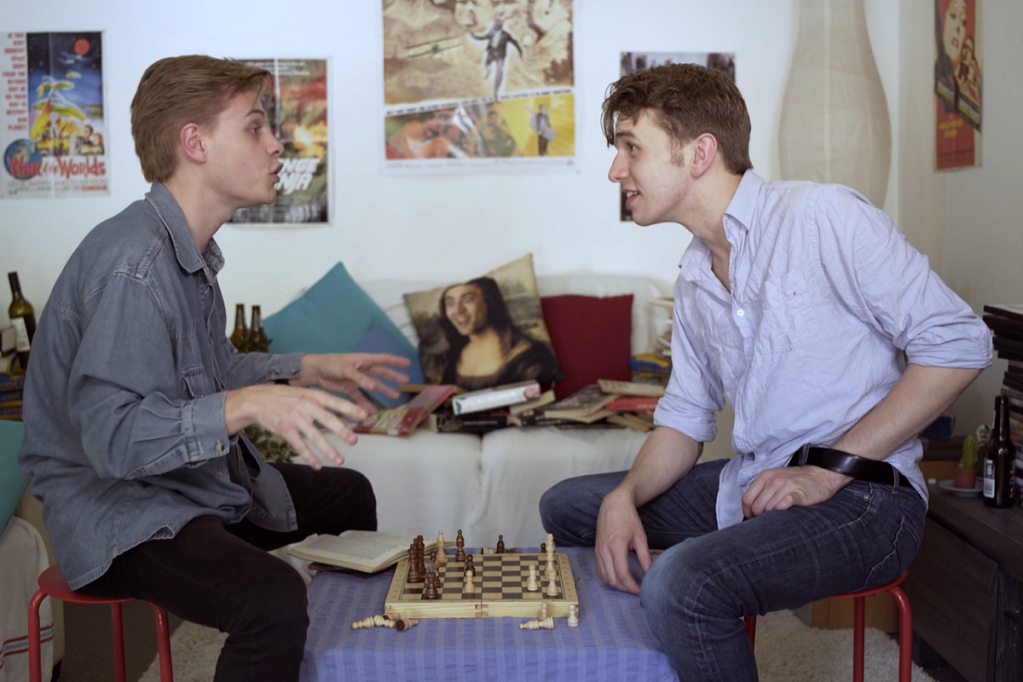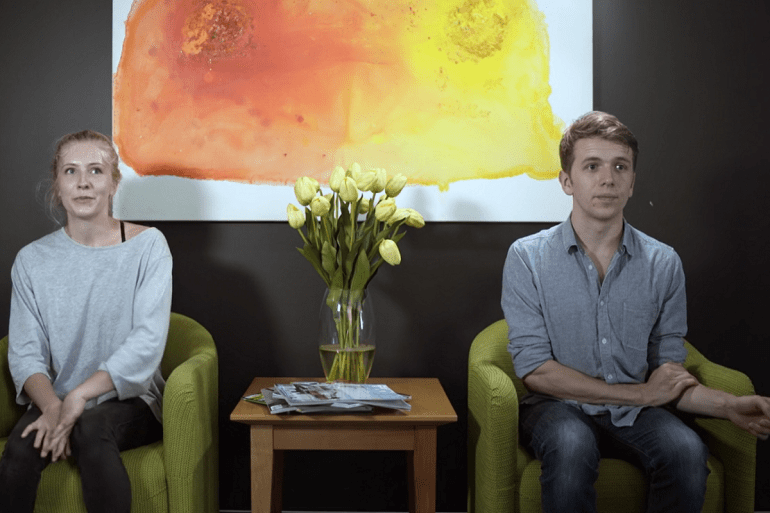Ben Ulm may oversee a wide array of projects in his role as ITV’s head of factual and reality, but it was his documentary background that proved the inspiration for short film Love & Other Mental Disorders.
Shot in Sydney just prior to the pandemic with a cast of final year NIDA students, the story follows a young man (Laurence Boxhall) afflicted with Alien Hand Syndrome, an extremely rare condition in which one hand is not under the control of the mind.
As he tries to find love in a ‘normal’ world, he begins to question whether matters of the heart are in fact a mental condition, and seeks out his hyper maniac best friend (Jack Richardson) for advice.
Speaking to IF, writer/director Ulm said the idea for the project came from the “incredible characters and incredible worlds” he had been afforded access to when working on a 2005 documentary series Medical Incredible for Discovery.
“There was a character we documented that had Alien Hand Syndrome and the producer that I was sending over to interview this middle-aged guy had been told to not be put off if one of his hands started touching her,” he said.
“She didn’t know how to take it but I thought at the time that if he genuinely had this condition then it would be very hard to meet someone and make love because if you had Alien Hand Syndrome, the potential for screwing up dates is ever-present.
“Five years later, I made a short documentary with a guy who had hyper mania that looked like Brad Pitt and was never down. When I asked him if he was sick, he said, ‘If you ask anyone enough questions, you can find something wrong with them’, and that stayed with me, along with the fact there is something like 425 mental disorders listed in the American Journal of Psychiatry.”

Ulm said he was given further food for thought when considering the symptoms of love.
“When you’re in love, you get the sweats, you’re absent-minded and your power of speech goes,” he said.
“I wondered if anyone had studied what we’d assigned to the classic symptoms of love and called it a mental disorder, and sure enough if you do your research, there are people that have studied it and given it a name.
“So those three ideas collided when I had some time outside my day job into this narrative of someone with Alien Hand Syndrome trying to find love.”
The film resonated both domestically and internationally since its release last year, winning a slew of awards, including Best Comedy Short at the 2022 Hollywood Shortfest; Best Original Screenplay at the 2022 New York Indie Shorts Awards; Best Comedy and Best Lead Actor at the 2021 LA Independent Film Channel Festival; and the Special Jury Award at 2021 SydFest Independent Film Festival.
It was also an official selection at last year’s Cannes Indie Shorts Awards, Venice Shorts Awards, and Anarchy Film Festival.
Ulm described the global reception of his project as a “lovely surprise”.
“In my day job at ITV and over my 35-year career in television, everything I make or contribute to comes back with notes, and so I just wanted to make something in my spare time that I could just put out there,” he said.
“There’s nothing more gratifying than sending it for the judgment of someone else and coming back with a selection for a screening at Cannes, or winning an award, as it has in LA or New York.
“I didn’t expect that because it was very much a hobby project. I think COVID has given people a lot of opportunities to reflect on what they are doing or create in some spare time. I used it to hone that film and put it out there without telling anyone so it was wonderful to get that feedback.”
The success of the film has left the door open for an expanded version of the concept.
Ulm said he was considering a “multi-narrative” featuring different people’s experiences either of love or finding love with disability.
“In the short film, the main character recognises the hand isn’t the problem — it’s his attitude toward the hand,” he said.
“I think we all live with our defects and the hope is something heartwarming but funny might make us all a little less judgmental of ourselves, so we look at how we feel about the defect, instead of the defect itself.”


